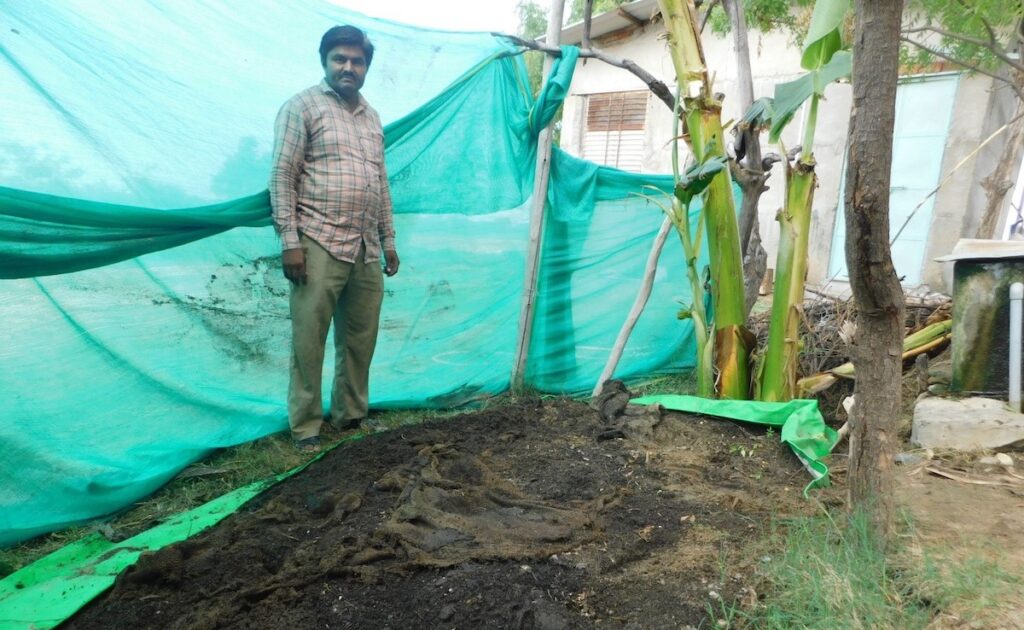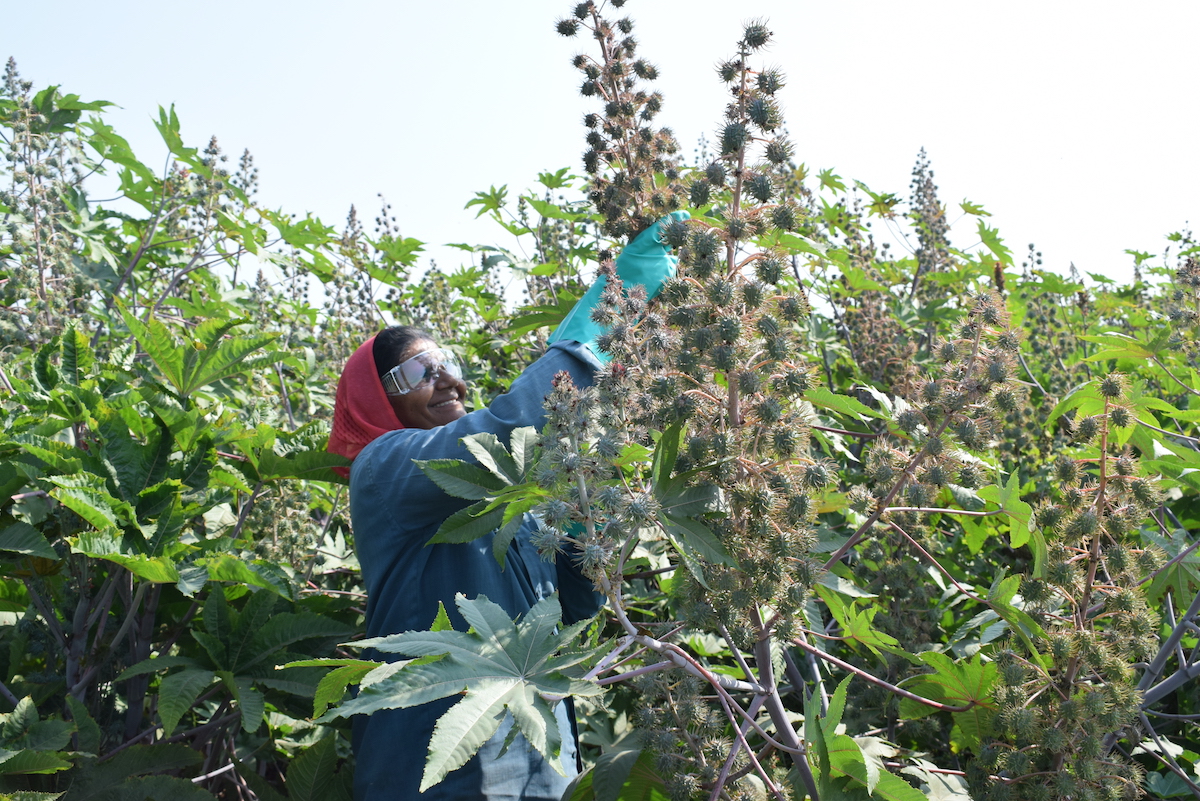A woman in protective gear works on a castor farm.
Castor is a drought- and pest-resistant crop that can be grown in a variety of climatic conditions making it an ideal option for farmers in arid regions. This fact, along with its high seed-oil content make it an agricultural lifeline for growers. India produces 90 percent of the world’s castor oil, which is cultivated on 892,000 hectares of land.
As castor gains prominence as a crop, it is important to ensure sustainable and responsible production to benefit consumers, producers and the environment. Pragati, launched in May 2016, is the world’s first sustainable castor initiative.
The project was founded by a consortium that includes Arkema, BASF, Jayant Agro-Organics, along with Solidaridad as the implementing partner. After seven years, Pragati has had a profound impact and achieved significant milestones:
- More than 7,000 participating farmers have been trained, audited, and certified.
- Over 74,500 tonnes of certified castor seed have been cultivated by Pragati farmers. The yield for farmers in the programme’s seventh year is 36 percent higher than that of non-Pragati farmers in the project regions.
- Over 7,000 hectares are being farmed in accordance with the Sustainable Castor Caring for Environmental and Social Standards (SuCCESS code). To date, a total of more than 27,000 hectares have been cultivated in compliance with this code in the project.
- Data suggests there has been a 21 percent reduction in water usage in the demonstration plots where water-management practices developed by Pragati have been implemented.
- The Pragati project has distributed over 7,000 free safety kits and crop protection product boxes.
- Farmers from more than 100 villages in North Gujarat now participate in the programme.
- Medical camps have been organized in all project villages over the past year, providing health services to over 8,500 farmers, workers, and their family members, including programme participants and non-participants.
- More than 380 training sessions were held with farmers over the past year.
- Over 475 lead farmers have been identified and trained to guide certified farmer groups.

Since my engagement with the Pragati programme, I have adopted sustainable practices and diversified my agricultural practices which have improved my yield and income. The support and guidance provided has played a crucial role in my adoption and successful implementation of new agricultural techniques, such as vermicomposting.
Jayeshbhai Ramjibhai Mujat, a 45-year-old castor farmer in the Banaskantha district, Gujarat
An eye to the future
Project participants increasingly see castor farming as a profitable venture and have increased the amount of land dedicated to it. Now, consortium partners have committed to a third phase of the Pragati programme, from 2023 to 2026. This phase will continue promotion of sustainable farming practices, with a special emphasis on female participation and improved water management techniques within the farming communities.
The initial concept and design of the Pragati project was based on a survey of more than 1,000 castor farmers in Gujarat, the largest castor-producing state in India. The programme encourages sustainable castor crop production by:
- Using good agricultural practices to increase yield and farmer income
- Efficiently using water resources and maintaining soil fertility
- Driving adoption of good waste management practices
- Enabling better health and safety practices and respecting human rights
Read about the results of Year Six of Pragrati here and learn more about castor farming here.

